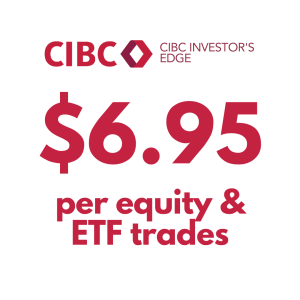
It’s no news that owning individual stocks can be a costly investment strategy due to commissions and management fees. This is a drawback which has made ETFs more attractive to Canadian investors in recent years. Most retail ETFs in Canada, or ETFs in general, offer fewer fees which helps investors to maximize returns. While ETFs offer captivating benefits, identifying the best retail ETFs in Canada is crucial. When choosing the best retail ETFs in Canada, you should consider factors such as management fees, diversification, liquidity, and size. Hence, this article will explore some of these ETFs and what they offer. This will help you make informed investment decisions. Continue reading to learn more!

Table of contents
What is a retail ETF?
An ETF, which stands for Exchange Traded Fund, refers to an investment option that spreads its funds among a basket of diverse investment assets. These assets might include stocks, commodities, bonds, or other securities, as long as they are readily available during market hours.
CIBC Investor’s Line Offer
Up to $6.95 per online stock or ETF trade. Plus, there’s no minimum account balance.
Portfolio managers are responsible for the management of ETFs. They often charge lower management fees compared to mutual funds or similar other investments. They buy and hold many assets with the expectation that the assets will increase in value. These managers also invest in diverse assets, which is an ETF’s approach to mitigating risks.
Imagine you have different fruits in your basket. If one suddenly spoils, you still have other fruits to enjoy. This explains the concept of diversification. It protects your investment as you won’t rely on the performance of a single asset (or in this case, fruit).
Similarly, a retail ETF is an ETF that buys stocks from companies centralized in retail-related businesses. These companies may own and operate general merchandise stores and specialty stores, as well as home furnishing and improvement stores. Examples of popular retail companies are Amazon, Costco, Walmart, Macy’s, Best Buy, and Walgreens.
Although there are slight differences, retail ETFs share similar features with other ETFs. Their similarities are seen in diversification, transparency, liquidity, low cost, tax efficiency, and so on.
Related Reading: ETFs vs Mutual Funds: Which is Better?
Should you buy sector ETFs?
Sector ETFs focus on other sectors of the economy, including the retail sector. These sectors may include technology, energy, healthcare, and financial services, among others. The choice of whether to buy sector ETFs or not depends on your financial circumstances and investment goals.
However, certain factors in sector ETFs may affect your decisions. They include diversification, risk tolerance, costs, and market conditions. Unlike broader ETFs, some sector ETFs are less diversified because they focus on a particular industry. It reduces their ability to spread risk. Fortunately, you can diversify your portfolio by purchasing a variety of investments across numerous industries to mitigate this risk.
Sector ETFs are known for their low-risk benefits. Nevertheless, to be safe, know your risk tolerance before making a decision. Also, by leveraging certain economic events, investors can speculate on a sector ETF’s performance.
Related Reading: Types of ETFs in Canada
CIBC Investor’s Line Offer
Up to $6.95 per online stock or ETF trade. Plus, there’s no minimum account balance.
Best Retail ETFs in Canada
There are no Canadian ETFs whose only focus is primarily on the retail industry in Canada. However, few alternatives offer similar options in Canada to local investors. The majority of the best retail ETFs deal with U.S. retail businesses. They include:
| Ticker | Net Assets | PE Ratio | Yield |
| XST-TO | $198.26M | 16.71 | 0.83% |
| XRT | $422.81M | 10.27 | 2.02% |
| IYK | $1.41B | 21.02 | 2.75% |
| ONLN | $90.35M | N/A | 0% |
| VDC | $7.74B | 22.39 | 2.58% |
| IBUY | $181.92M | 28.77 | 0% |
Related Reading: Buy Now, Pay Later: What You Need to Know
1. iShares S/P TSX Capped Consumer Staples ETF (XST-TO)
As mentioned earlier, it’s difficult to find a specific ETF that invests only in Canada’s retail sector. However, the iShares S&P TSX Capped Consumer Staples ETF is a good alternative. This is because it channels investments in the grocery sector of the Canadian retail industry. Examples of top companies you’ll find in XST include Alimentation Couche-Tard Inc. and George Weston Ltd. Other companies include Metro Inc. and Loblaws Companies Ltd. You can find these companies on the Toronto Stock Exchange. Because it’s considered a consumer staple ETF, it’s likely to perform well even in an unfavorable economy.
2. SPDR S/P Retail ETF (XRT)
The SPDR S&P retail fund was launched in 2006. It has the highest net assets under management. It tracks the performance of the S&P Retail Select Industry Index as its underlying index. XRT focuses more on small and medium-cap companies due to its unique equal-weighted approach. This means that XRT will channel the majority of your investments into small and medium-sized companies. Examples of these companies include Ulta Beauty Inc., TJX Companies Inc., Carvana Co. (CVNA), and more.
XRT performance usually depends on the volatility of the retail market. Thus, it can be unpredictable at times. However, its low management expense ratio can make up for any drops in its performance. This ETF is considered one of the best retail ETFs in the financial market.
Related Reading: MER vs Management Fee: What’s the Difference?
CIBC Investor’s Line Offer
Up to $6.95 per online stock or ETF trade. Plus, there’s no minimum account balance.
3. iShares U.S. Consumer Staples ETF (IYK)
Another best retail ETF is the iShares US Consumer Staples ETF, which was launched in 2000. It focuses on stocks from retail companies that produce consumer staple items. Staple items are always in demand and thus immune to unfavorable economic conditions.
Hence, IYK is relatively unaffected by financial downturns due to the staple stocks in its holdings. Examples of these stocks include Procter & Gamble, Coca-Cola, PepsiCo, Colgate-Palmolive, Philip Morris, and so on. For the past decade, IYK has generated over 130% returns with 10% dividend growth. In addition, it has consistently paid dividends to investors for the past 22 years.
4. ProShares Online Retail ETF (ONLN)
The ProShares Online Retail ETF is one of the best retail ETFs that officially began trading in 2018. Relying solely on online retail, it tracks an underlying index called the ProShares Online Retail Index. ONLN has 27 distinct holdings in its portfolio, which is relatively small and less diversified for a retail ETF.
A greater part of its portfolio consists of U.S. stocks. Thus, the fund is likely to have a positive future. Examples of the stocks in its portfolio include Amazon, Newegg Commerce, and Alibaba. Other of its holdings include Carvana, Etsy, eBay, and Chewy.
Related Reading: 5 Best Money Market ETFs in Canada
5. Vanguard Consumer Staples ETF (VDC)
The Vanguard Consumer Staples ETF began in 2004. It tracks the performance of the Spliced U.S. Investable Market Index/Consumer Staples 25/50. This index constitutes a combination of small, mid-cap, and large U.S. companies’ stocks. Like iShares U.S. Consumer Staples, Vanguard stocks are in the consumer staples sector.
The ETF has a more diversified portfolio, with a total holding of 105 retail stocks. Some of these stocks include Procter & Gamble Co., Costco Wholesale Corp., Coca-Cola Co., and more. Due to its diversification and low expense ratio, it’s considered one of the best retail ETFs.
6. Amplify Online Retail ETF (IBUY)
The Amplify Online Retail ETF is also one of the best retail ETFs that was launched in 2016. Just like the ProShares Online Retail ETF, IBUY deals in online retail stocks. It monitors the EQM Online Retail Index along with its biggest stocks, such as Amazon, Shopify, and Alibaba. IBUY’s portfolio comprises top holdings such as Upwork Inc., eBay Inc., and Booking Holdings Inc., among others. It’s a diversified fund that targets companies that generate at least 70% of their total revenue from online transactions.
IBUY measures publicly traded companies’ performance with the revenue from online retail companies. It is to determine the growth and success of a specific online retail company in the stock market. The strategy of this ETF is structured for capital appreciation.
Related Reading: How to Buy Treasury Bills in Canada
What is the largest retail ETF?
The largest retail ETF is the SPDR S&P Retail ETF, which controls $422.81 million in assets. The ETF holds 99.97% of stocks from different retail sub-sectors. Apparel retail stocks alone cover 28% of its portfolio. Other stocks stem from specialty stores, internet retail, and automotive retail. The ETF also charges a low management fee of 0.35%.
Can retail investors invest in ETFs?
Yes, retail investors can invest in ETFs, whether it’s in the retail industry or elsewhere. ETFs are created to be accessible to all kinds of investors, including retail investors. Looking at their affordable share prices and high liquidity, a wide range of investors can consider it an option.
Related Reading: Best Dividend ETFs in Canada for 2023
Choosing the Next ETF for your Portfolio
Choosing the best retail ETF can be a daunting task. They vary in size, performance, fees, and more. All these factors are worth considering when choosing the best retail ETF to add to your portfolio. For instance, a larger ETF tends to have higher stability when compared to smaller ETFs. You can begin your next selection by defining your investment goals and objectives. Do you prefer long-term capital growth and income? Or do you have a high risk tolerance and an appetite for rapid growth?
Lastly, ensure to conduct thorough research. Furthermore, when your needs get complex or you’re confused, consult with a financial advisor. An advisor will provide you with personalized guidance tailored to your personal goals. If you’re looking for a financial advisor, Advisorsavvy can help. Fill out this quick questionnaire to be matched today!
Read More: Bond ETF vs Stock ETF: Which is Better?

